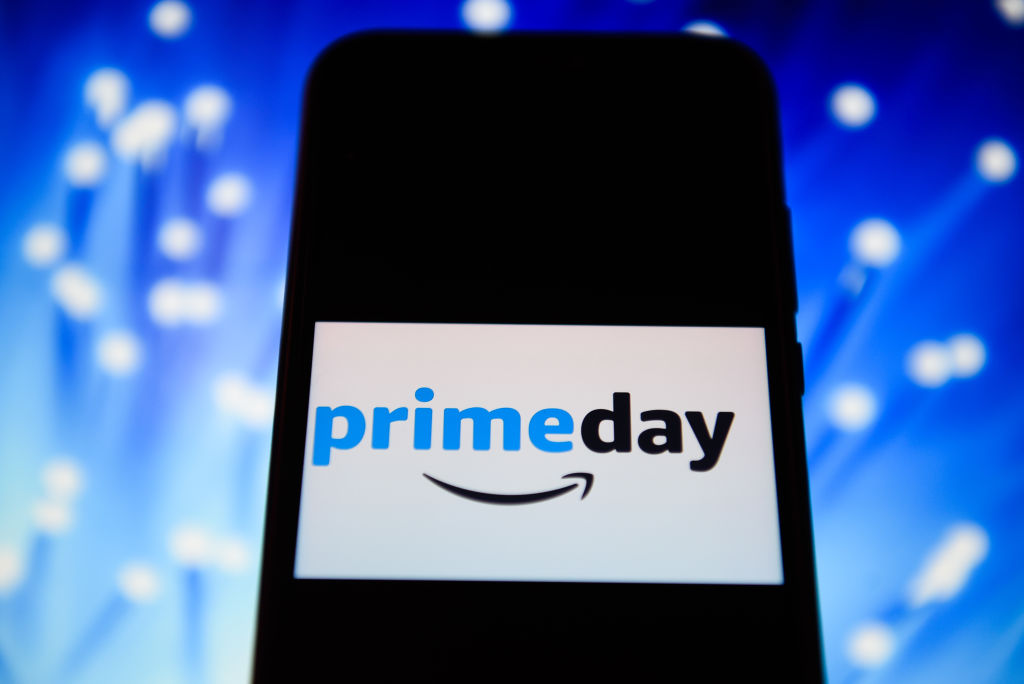Should Ethics Determine Who You Do Business With?
Consumers seeking to do business only with ethical companies should ask these questions.


Profit and prosper with the best of Kiplinger's advice on investing, taxes, retirement, personal finance and much more. Delivered daily. Enter your email in the box and click Sign Me Up.
You are now subscribed
Your newsletter sign-up was successful
Want to add more newsletters?

Delivered daily
Kiplinger Today
Profit and prosper with the best of Kiplinger's advice on investing, taxes, retirement, personal finance and much more delivered daily. Smart money moves start here.

Sent five days a week
Kiplinger A Step Ahead
Get practical help to make better financial decisions in your everyday life, from spending to savings on top deals.

Delivered daily
Kiplinger Closing Bell
Get today's biggest financial and investing headlines delivered to your inbox every day the U.S. stock market is open.

Sent twice a week
Kiplinger Adviser Intel
Financial pros across the country share best practices and fresh tactics to preserve and grow your wealth.

Delivered weekly
Kiplinger Tax Tips
Trim your federal and state tax bills with practical tax-planning and tax-cutting strategies.

Sent twice a week
Kiplinger Retirement Tips
Your twice-a-week guide to planning and enjoying a financially secure and richly rewarding retirement

Sent bimonthly.
Kiplinger Adviser Angle
Insights for advisers, wealth managers and other financial professionals.

Sent twice a week
Kiplinger Investing Weekly
Your twice-a-week roundup of promising stocks, funds, companies and industries you should consider, ones you should avoid, and why.

Sent weekly for six weeks
Kiplinger Invest for Retirement
Your step-by-step six-part series on how to invest for retirement, from devising a successful strategy to exactly which investments to choose.
Question: I have a friend who refuses to patronize prominent businesses after they are discovered to have acted unethically. What do you think about this?
JAMES GLASSMAN: Why Socially Responsible Investing Is Not for Me
Answer: I’m fine with it—as long as your friend recognizes that making these decisions in a consistent, comprehensive way could end up being a full-time job. (The same goes for ethical investing, but so-called socially conscious mutual funds try to make this easier.)
I can understand consumers wanting to punish Wells Fargo and Volkswagen for the deceit practiced by some of their employees and executives, or shunning aggressive Silicon Valley firms (such as Uber) for their harsh corporate cultures. But here are some questions that consumers need to ask themselves:
From just $107.88 $24.99 for Kiplinger Personal Finance
Become a smarter, better informed investor. Subscribe from just $107.88 $24.99, plus get up to 4 Special Issues

Sign up for Kiplinger’s Free Newsletters
Profit and prosper with the best of expert advice on investing, taxes, retirement, personal finance and more - straight to your e-mail.
Profit and prosper with the best of expert advice - straight to your e-mail.
- Are your choices simply reactions to negative revelations? Or are you also going to find out more about the regular business practices of all the major companies you patronize—their employee relations, environmental records, compensation levels, social stances, offshoring of U.S. jobs or whatever you care about most?
- If you avoid buying the products of a closely held company because you don’t agree with the politics of the company’s owner, are you taking the trouble to learn more about the politics and social attitudes of other business owners whose firms you patronize?
- Are you willing to pass up products that are deemed to be the best in their class—of high quality and well priced—because of something you don’t like about the maker?
- If you’re a passionate bargain hunter, are you aware that the makers and sellers of cheap products and services might be firms that squeeze their employees and vendors?
- In addition to boycotting companies you don’t like, are you tilting your patronage toward firms that have hard-earned reputations for business ethics (say, Costco, Lyft and Whole Foods)?
- Are you taking the time and trouble to tell the now-shunned company why you are no longer a patron?
SLIDE SHOW: The 10 Least Shareholder-Friendly Stocks
- Is your blacklisting forever, or can a company’s response to its crisis—restitution, firing the CEO—get it back in your good graces?
A lot of thorny issues to consider here.
Have a money-and-ethics question you'd like answered in this column? Write to editor in chief Knight Kiplinger at ethics@kiplinger.com.
Profit and prosper with the best of Kiplinger's advice on investing, taxes, retirement, personal finance and much more. Delivered daily. Enter your email in the box and click Sign Me Up.

Knight came to Kiplinger in 1983, after 13 years in daily newspaper journalism, the last six as Washington bureau chief of the Ottaway Newspapers division of Dow Jones. A frequent speaker before business audiences, he has appeared on NPR, CNN, Fox and CNBC, among other networks. Knight contributes to the weekly Kiplinger Letter.
-
 5 Vince Lombardi Quotes Retirees Should Live By
5 Vince Lombardi Quotes Retirees Should Live ByThe iconic football coach's philosophy can help retirees win at the game of life.
-
 The $200,000 Olympic 'Pension' is a Retirement Game-Changer for Team USA
The $200,000 Olympic 'Pension' is a Retirement Game-Changer for Team USAThe donation by financier Ross Stevens is meant to be a "retirement program" for Team USA Olympic and Paralympic athletes.
-
 10 Cheapest Places to Live in Colorado
10 Cheapest Places to Live in ColoradoProperty Tax Looking for a cozy cabin near the slopes? These Colorado counties combine reasonable house prices with the state's lowest property tax bills.
-
 21 Last-Minute Gifts for Grandparents Day 2025 to Give Right Now
21 Last-Minute Gifts for Grandparents Day 2025 to Give Right NowHoliday Tips Last-minute gifting is never easy. But here are some ideas to celebrate Grandparents Day.
-
 Texas Sales Tax-Free Weekend 2025
Texas Sales Tax-Free Weekend 2025Tax Holiday Here's what you needed to know about the Texas sales tax holiday.
-
 Alabama Tax-Free Weekend 2025
Alabama Tax-Free Weekend 2025Tax Holiday Here’s everything you need to know about the 2025 back-to-school Alabama sales tax holiday.
-
 The Sweet 23: States Where Twix and Kit Kat Avoid the ‘Candy Tax’
The Sweet 23: States Where Twix and Kit Kat Avoid the ‘Candy Tax’State Taxes There’s something spooky this Halloween, and it’s not just the ghouls. Find out if your state’s sales tax takes a bite out of sweet savings.
-
 Florida Back-to-School Tax-Free Holiday 2025
Florida Back-to-School Tax-Free Holiday 2025Sales Taxes The new tax-free holiday in Florida brought month-long savings on computers, clothing and other school supplies.
-
 Five Reasons You Shouldn't Shop Amazon's Prime Big Deal Days
Five Reasons You Shouldn't Shop Amazon's Prime Big Deal DaysSmart Buying Are Amazon Prime Big Deal Days still a good deal? We'll break it down.
-
 Best Cash Back Credit Cards
Best Cash Back Credit CardsCredit Cards If you're searching for a credit card that rewards you for everyday purchases, we've chosen the best.
-
 How to Spend $1,000: Find Cheap (or Free) Online Courses to Build Career Skills
How to Spend $1,000: Find Cheap (or Free) Online Courses to Build Career SkillsSmart Buying There's a huge array of skill-building online courses that can level up your career for under $1,000.